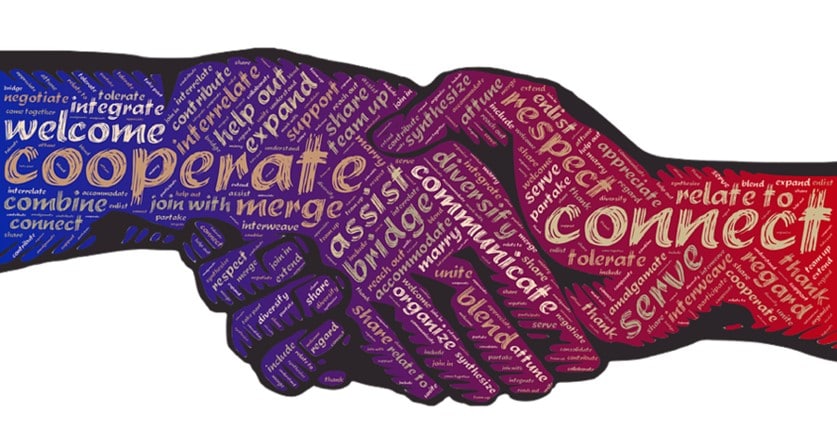
Top 3 Reasons Why Smart Companies Hire Technical Ghostwriters
TOP 3 REASONS WHY SMART COMPANIES HIRE TECHNICAL GHOSTWRITERS
Have you ever set up a printer in your home or downloaded software onto your laptop? Perhaps you constructed a jungle gym for your kids or took your blood glucose level with a medical monitor.
If so, you likely benefited from the work of a technical ghostwriter.
Some may only associate the term “ghostwriting” with professionals who draft content on behalf of another individual, often for books and speeches.
Today, the term also extends to writing consultants who draft posts on social media sites for celebrities and company leaders whose relevance can depend on staying current.
Another common type of ghostwriting is for business and technical purposes – on behalf of government agencies, educational institutions, corporations, and entrepreneurs.
The myriad forms of ghostwriting for business may include the drafting of white papers – an authoritative source of information about a topic, product, or service.
It also may include academic case studies, corporate standard operating procedures (SOPs), manuals, and other guidelines for internal and external use by non-profit organizations.
It’s simple: Our daily consumer and business lives are eased by substantive, well-written content that translates complex and industry-specific jargon into cohesive, easy-to-understand manuals, user guides, policy and procedure documentation, instructions, and the like.
The Benefits of Hiring a Technical Ghostwriter
#1: You get a professional experienced in drafting compelling copy from complex source materials.
Sure, your subject matter experts (SMEs) understand the ins and outs of your products and services. Heck, they likely developed them!
Yet, these detail-minded people can find it difficult to grasp how to effectively communicate the essential information an end user needs. It takes an individual with specific expertise to create user-friendly copy that is clear, succinct, and quickly understood.
“Companies know their products and services, but they don’t always know how to describe their offerings in a way that the average person will understand,” says Erin Larson, a copywriter with The Writers For Hire (TWFH). “An effective technical writer provides an outsider’s perspective and an ability to translate the technical information from the subject matter expert to the public.”
In addition, SMEs often are skilled at listing the features of a product and not as practiced at describing its benefits for the user.
A solid technical ghostwriter is someone who is capable of distilling that content in a meaningful manner and “someone who, by education, innate ability, or experience, has the capacity to understand what the experts are talking about,” remarks TWFH technical writer Barbara Adams. “Engineers talk like engineers and don’t want to dumb down their conversations to get their point across.”
#2: You get an expert in producing content that effectively targets your customers and other end users.
An experienced technical ghostwriter possesses grammatical and organizational skills for drafting copy that engages people at various comprehension and reading levels.
For example, instructions on setting up a child’s $100 telescope would be quite different from those for a $2,500 Orion model.
And a manual of SOPs involving offshore oil rig operations is quite different from the operations plan for leadership in the event of an oil rig catastrophe.
Technical writers are communications professionals, and their expertise often includes a keen sense of audience targeting and content strategy.
Those offshore workers may prefer a hard-copy manual, while the board of directors probably seeks something simpler, like a Google doc that can be revised quickly and easily.
An adept writer can assess how to effectively market your information to the intended audience and utilize the appropriate delivery mechanisms to do so.
“An outside technical writer, typically, has been exposed to different companies and different technologies, and can therefore bring new perspectives about how to communicate technical topics,” Adams adds.
#3: Hiring a technical ghostwriter can save your company time, money, and headaches.
Outsourcing many types of labor has become common practice – especially for organizations who may benefit from an expert practitioner on an occasional basis.
As TWFH writer Brenda Hazzard asserts, “Outsourcing the writing of blogs, social media, white papers, and proposals is a good option for companies without a dedicated team of professional writers and editors.”
One thing to consider, Hazzard says, is whether to hire a technical writer with specialized, industry expertise or a generalist who has collaborated with various types of projects and industries. “While the former may come with applicable background and experience, the latter may be more objective, and possess a fresher, non-technical perspective.”
Additionally, any experienced contractor will prioritize the project and understands the importance of delivering a high-quality product – on time. After all, being hired for future projects depends on it.
“A subject matter expert within your organization may place the project on a back burner until they find the time to compose something. Plus, a SME’s content probably will need a good editor, someone who possesses a sharp eye for logical flow, grammar, style, and tone,” Hazzard adds.
Keep in mind that many consultants – whether they practice technical writing or another skill – must adeptly collaborate with a diverse array of individuals. They wouldn’t survive long otherwise!
“An effective technical writer is a good listener and a quick study, with the ability to work with various personality types,” Hazzard remarks.
Outsourcing your technical communication to a ghostwriter could be a smart decision for your company. Perhaps, too, it can provide benefits you never realized and, ultimately, help the company’s bottom line.
Related Content
- 0 Comment
Subscribe to Newsletter
- How Can SharePoint Be Used To Organize and Disseminate SOPs?
- Planning the Perfect Genealogy Research Trip: A Step-by-Step Guide
- From Silly to Awesome: How Words Change Meaning Over Time
- The Psychology of Font Choice: How Typography Impacts Content Engagement
- How to Distribute SOPs for Maximum Usability










